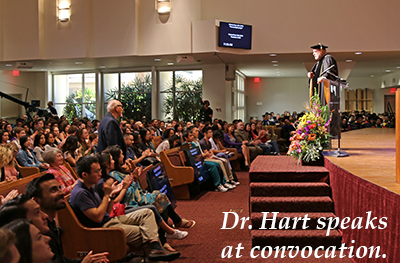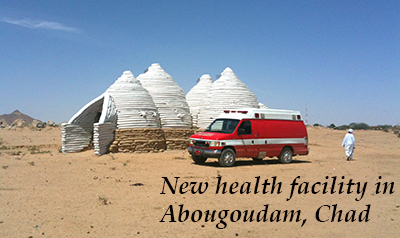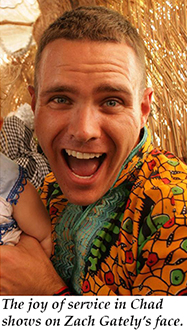 |
| October 2015 |
|
Instilling Passion
David Brooks is one of my favorite commentators, probably because I agree with many of his perspectives. So it was with some interest that I read his op-ed piece in The New York Times on Oct. 6 about American universities. According to him, our higher education institutions have swapped out their traditional role of instilling moral values and character in their students for the far more expedient role of preparing graduates for the workforce. While there is obviously some relationship between these two goals, it seems job skills are more saleable to prospective students and their families, while the far loftier goal of high moral character is left to other domains.
Brooks’ comments were looming in my mind as I looked out over our new student body at the annual fall convocation chapel last week. The Loma Linda University Church was packed, students sitting everywhere. One hundred and forty faculty members had marched in, wearing their traditional regalia, always a fine sight in the academic world. As I watched, I couldn’t help but wonder — have we struck the right balance between instilling moral values and workforce preparedness? Our graduates get jobs, good jobs — even national surveys have documented that. This is partly because we educate health professionals, a growth market across the country. But have we given them our best at developing their moral values, their characters, their passion for important causes bigger than themselves? We seek to do this through several strategies. Certainly providing the right milieu for physical, mental and social growth is an important piece of professional development. We also recognize that spiritual growth is important in developing compassion, faith, hope and other key values in life. We seek to contribute to this in various venues and activities, including our service learning programs. But the virtue I am speaking of here is passion — passion for causes large and small. Many of our students come with boatloads of passion for causes of all kinds. It is always fascinating for me to watch their progression. Many “grow” out of their focused commitment as they progress through their education. For others, their passion seems to deepen and mature to the point that it truly defines their character and career. Just this week I participated in an “International Crisis Committee” at the General Conference of the Seventh-day Adventist Church offices in Maryland. This committee has met more often than we would like recently, just last year dealing with whether Gillian Seton, our alumna and surgeon in Liberia, should stay or leave during the Ebola crisis.
Then several weeks ago, the U.S. Embassy in Chad issued a warning that it was unsafe in the country due to twin threats — Boko Haram coming in from Nigeria to the south, and al-Qaida in the Islamic Maghreb from the north. We have five American doctors and many volunteers and dependents working at Bere Adventist Hospital and Moundou Adventist Surgical Center, both in the south of Chad, as well as the new facility James and Sarah Appel are developing at Abougoudam in the east of Chad. Those of us who have worked abroad recognize that many times international news about a country may appear far scarier than what you feel on the ground when you are there. But these seemed very credible threats, and so after deliberation, the committee asked everyone to leave Chad. Despite some protests, the team evacuated, except Olen Netteburg covering Bere and James Appel returning to cover Moundou. Now, several weeks later, the committee was meeting again to decide whether it was safe to return. I appreciated the careful deliberation the entire group went through as they weighed the pros and cons of placing employees in harm’s way. We recognized that much of the danger was still present and evacuation may not be easy or even possible the next time.
But all our concerns had to be balanced against the passion of those who wanted to return, to voluntarily place themselves in danger because of the higher calling they feel to the people and patients of Chad. And so Scott and Bekki Gardner, Nick Buchholz and Diana Hernandez are returning to Moundou, while Rollin and Dolores Bland, Zach Gately and eventually others are returning to Bere. How do we grow that kind of passion? Should we even try? Surely there can also be passion for “safer” causes of equal purpose. Whether in a local community, church, hospital or work environment, the world is crying out for people with passion. I can assure you that each of those serving in Chad have meaning and purpose in their lives. They must carry some fear, but they also carry great fulfillment. They have found a calling in what they do, and they believe this is where God wants them at this point in their lives. That is the certainty of purpose we want to impart to others. That kind of passion, seeded around the world where our graduates end up, would change many things. More of that kind of passion among our faculty and staff at Loma Linda would also change many things! Thank you to all of you who have found your passion and are making a difference wherever you are. May you be fulfilled and may your tribe increase! Cordially yours,
Richard Hart, MD, DrPH
President
|
|
Office of the President, Loma Linda University, Loma Linda, CA 92350 Copyright © 2015 by Loma Linda University |
October 15, 2015
Notes from the President -- Passion
Share




